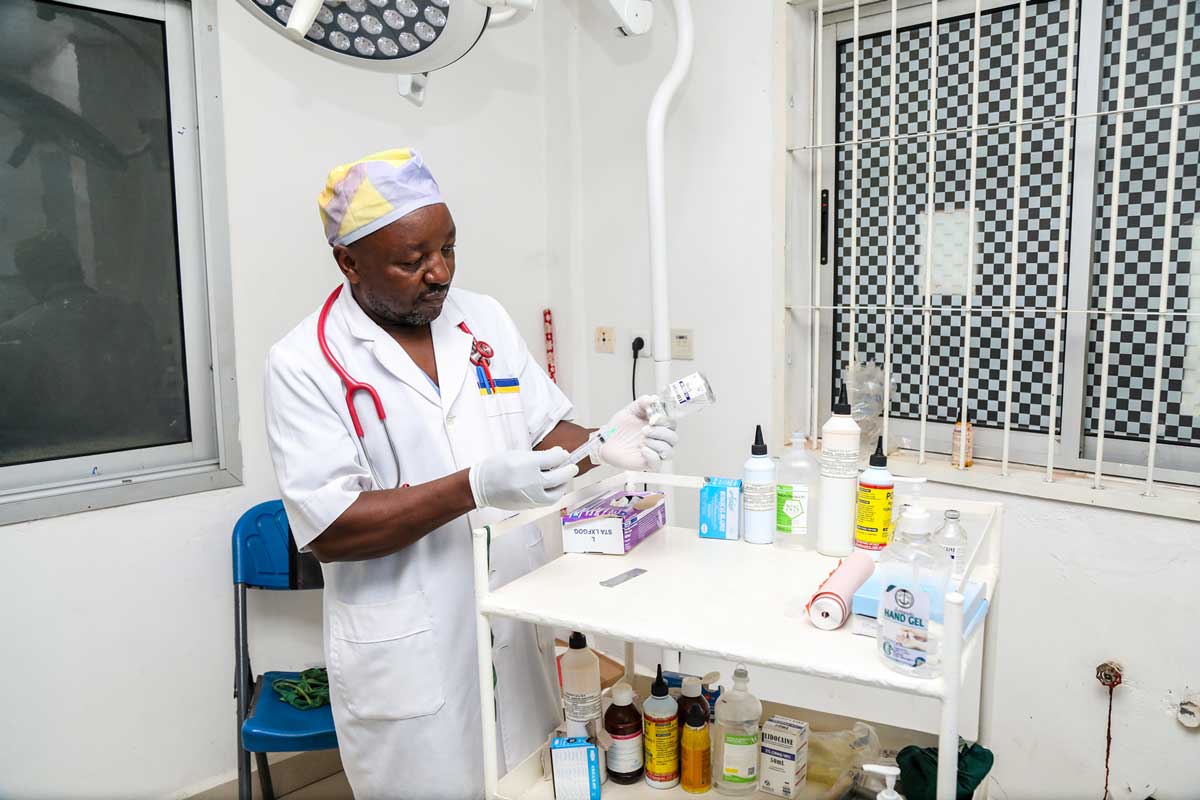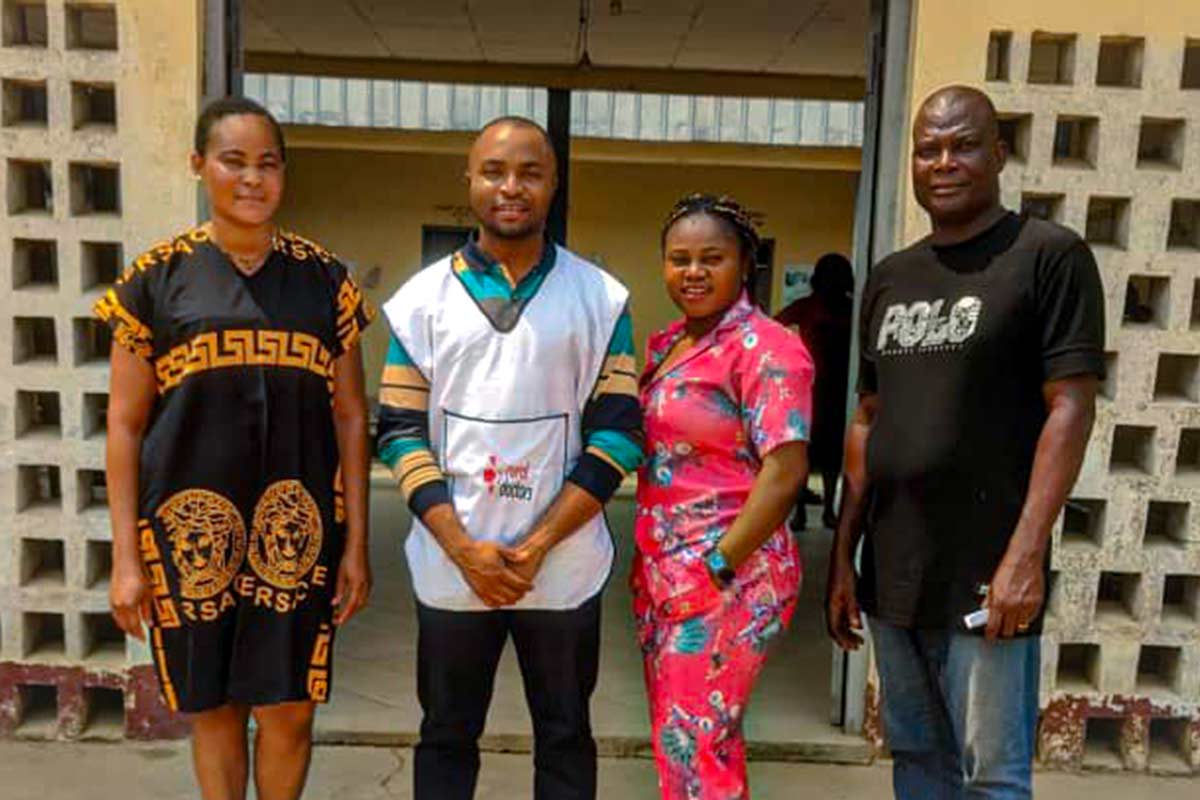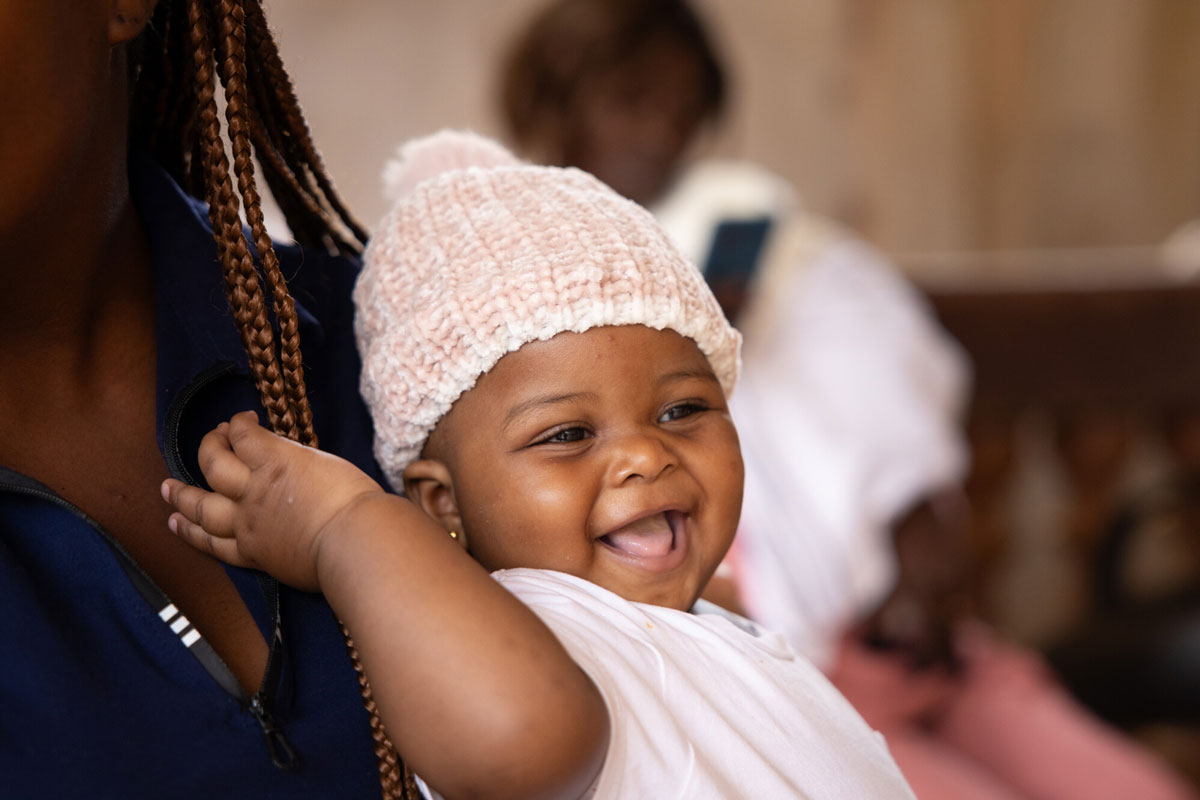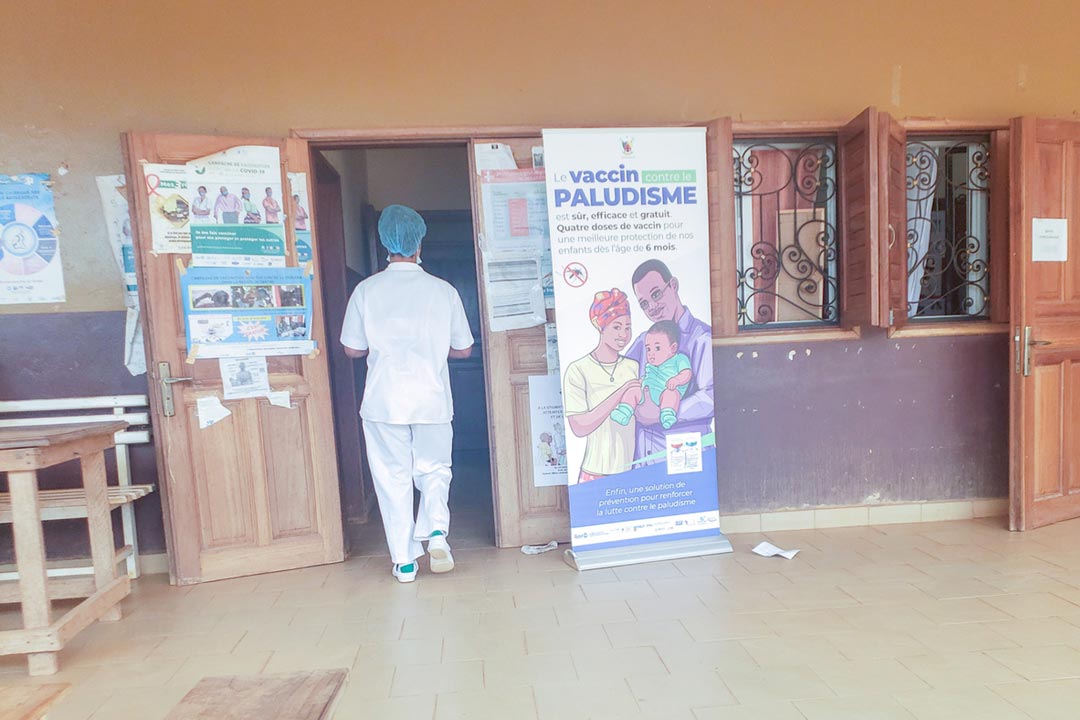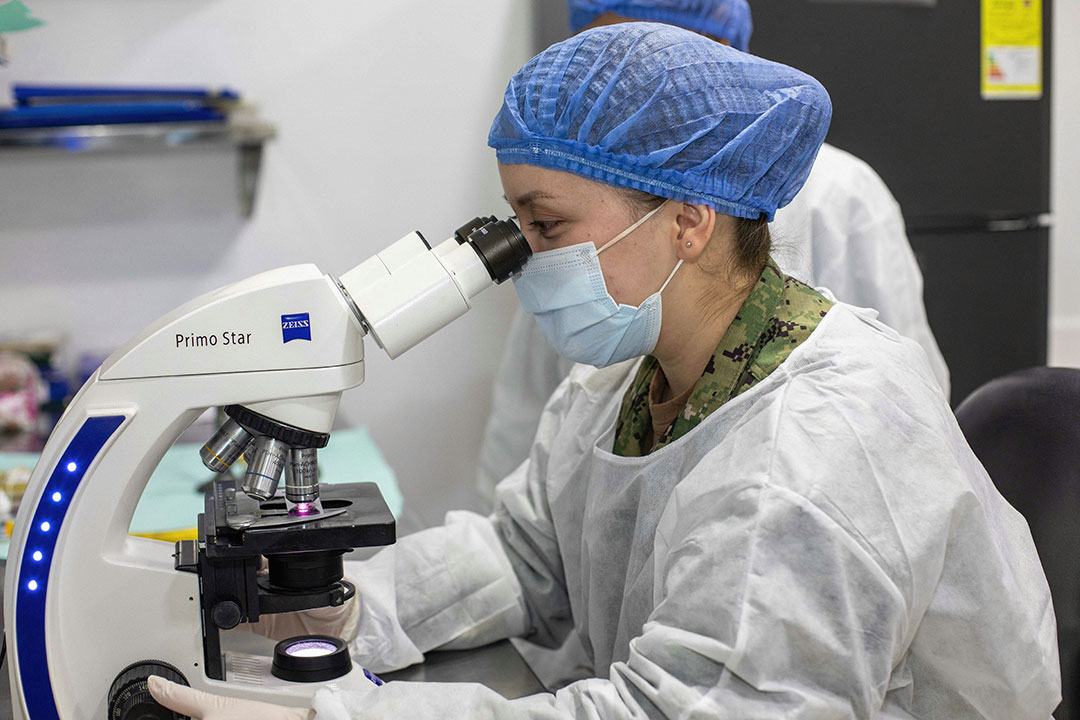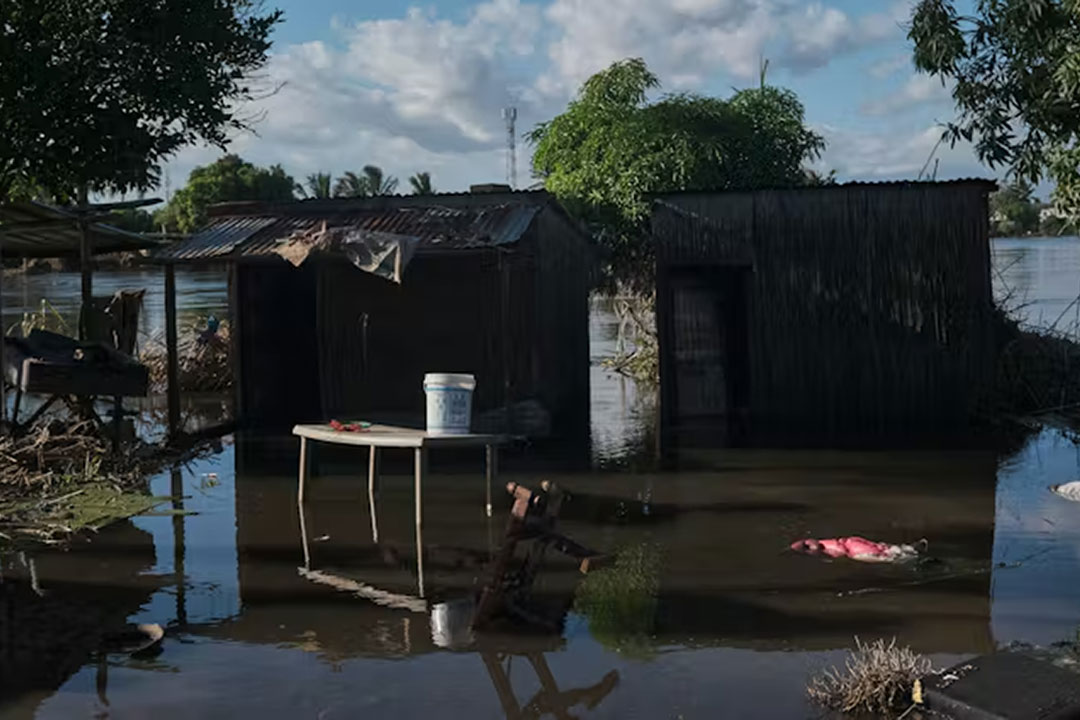“We need to go viral”: the Cameroonian nurse campaigning against cancer
Ignorance and suspicion stand in the way of large-scale HPV vaccine coverage in Cameroon, says Florence Manjuh. She intends to change that.
- 25 January 2024
- 6 min read
- by Akem Olives Nkwain
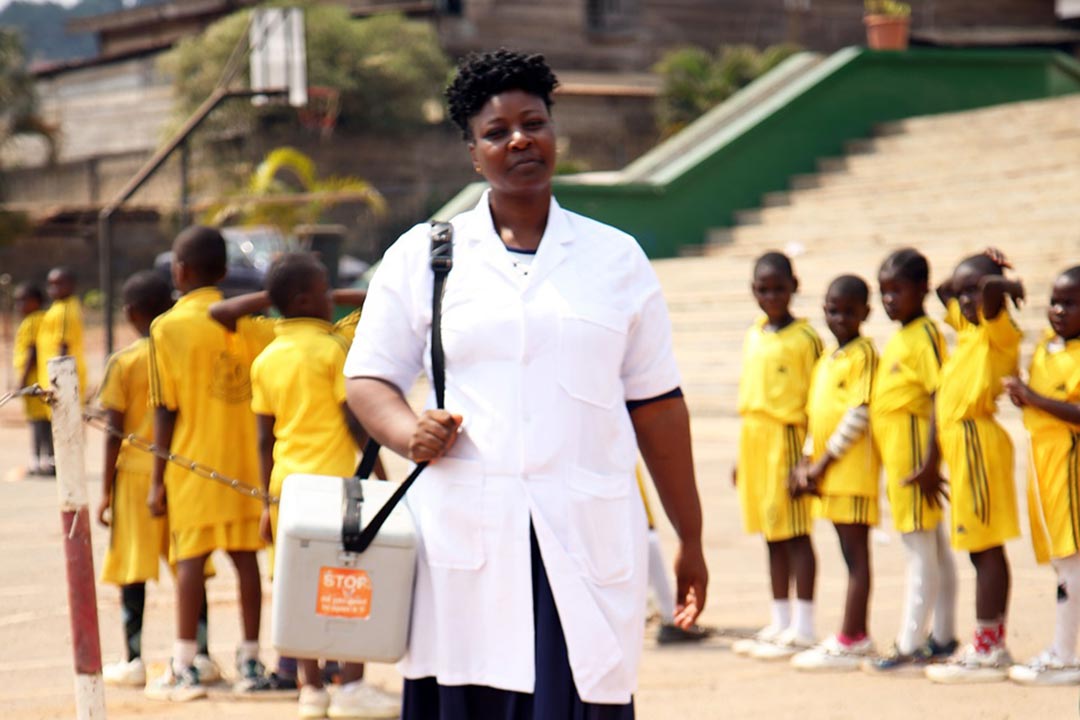
To Florence Manjuh, Cameroon’s lagging uptake of the cancer-preventing human papillomavirus (HPV) vaccine is not just a professional concern, but a tragedy waiting to happen.
Manjuh, a state registered nurse and supervisor of the Women’s Health Programme at Cameroon Baptist Convention Health Services, which runs the country’s largest breast and cervical cancer screening programme, has her own experience of bereavement by cancer.
"I desire that no one dies from cancer. I suffered in nursing school and later in life – because my sponsor and elder brother died due to cancer. I think that if people are prevented from cancers it will save [their] lives, that of their progeny and those who depend on them."
- Florence Manjuh, nurse and coordinator of the Women’s Health Programme at Cameroon Baptist Convention Health Services
It happened more than 15 years ago, but she remembers her brother’s death like it was yesterday. “I’d desired to be a nurse from when I was very young,” she recalls. “By the time I was admitted into the nursing school, that’s the time my elder brother – who was my sponsor – was diagnosed with cancer. The pain he went through made me feel very bad. Barely two months into nursing school, [he] died.”
His loss was painful, and it could have halted her career. But instead, as she continued in her educational tracks, she found her brother’s death had ignited a passionate interest in cancer prevention.
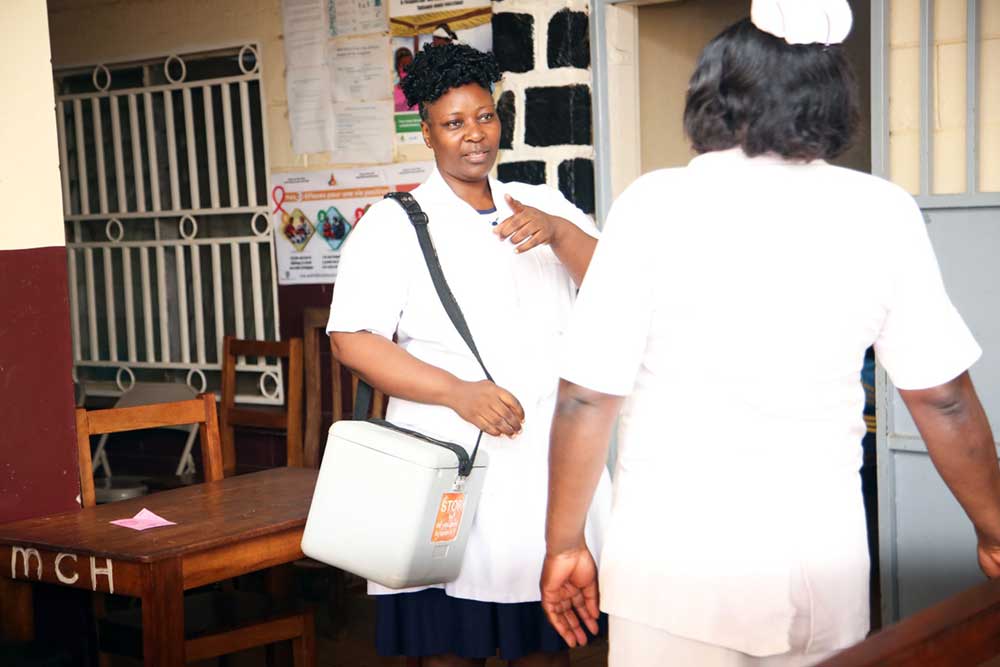
Credit: Akem Olives Nkwain
She wrote her final long essay on prostate cancer, and was assigned, on graduation, to the Women’s Health Programme – “the cervical cancer prevention programme,” Manjuh explains.
“Following my in-depth research on HPV-related cancer, I’ve realised they can be prevented 100%,” she says. That’s only a slight exaggeration – according to the US Centers for Disease Control and Prevention (CDC), vaccination against HPV can prevent more than 90% of HPV-linked cancers from ever developing. Then again, just this week, Public Health Scotland reported that since 2008, no cases of cervical cancer of any kind have been detected in women who have been vaccinated against HPV.
“Knowing that they can be prevented, I’ve dedicated over eight years to ensure that I prevent many other people from being infected with preventable cancers and other HPV-related cancers,” Manjuh says.
“I desire that no one dies from cancer. I suffered in nursing school and later in life – because my sponsor and elder brother died due to cancer. I think that if people are prevented from cancers it will save [their] lives, that of their progeny and those who depend on them,” she adds.
Viral cancer
There are six types of HPV-related cancers: cervical cancer, anal cancer, oropharyngeal cancer, penile cancer, vaginal cancer and vulvar cancer.
Cervical cancer is by far the commonest and deadliest among the world’s women.
Have you read?
Cameroon has a population of 8.02 million women aged 15 years and older who are considered at risk of cervical cancer. It’s the second most frequent cancer among women in Cameroon overall: some 2,770 women are diagnosed with cervical cancer in Cameroon each year, according to the HPV Information Centre. A shocking 1,787 of them die of the disease.
Vaccine ignorance
Since 2020, vaccination against HPV – which can prevent the vast majority of cervical cancers – has been part of Cameroon’s routine immunisation schedule, meaning that it’s available free of charge to nine-year-old girls. But still, says Manjuh, much of the population remains unaware of the vaccine.
Other sectors of the populace are suspicious, having gotten wind of unfounded rumours. “The vaccination rate is low out here because many people are sceptical. People don’t understand the vaccine, and some even go as far as saying the vaccine is a strategy to render young girls sterile. Even the government that introduced the vaccine did very little training, so there’s gross unawareness of the HPV vaccine,” the nurse explains.
The moment in time that the vaccine was first rolled out also influenced its low level of acceptance, Manjuh thinks.
The HPV vaccine was integrated into the Expanded Programme on Immunization (EPI) almost at the same time as the COVID-19 vaccine. People began to conflate the two jabs, which led to confusion and doubt. “So when you go to the field, the vaccine is not well received, even among health workers,” the nurse says.
Another reason for the low uptake of the HPV vaccine was the strategy used to deploy it. The government adopted the school-based approach – a common strategy for this vaccine, which is recommended for school-going age groups – but, according to Manjuh, without the level of sensitisation necessary.
Can a change of strategy turn tides?
Calvin Ngalla, a nurse and coordinator for the Women’s Health Programme at Mbingo Baptist Hospital, says it’s time to move away from the school-based approach.
“We piloted a project in 2022 to provide screening to mothers and vaccinate their daughters simultaneously – called a mother-daughter approach. We targeted two rural communities: Mvondou in the Centre Region and Ngounso in the West Region of Cameroon. While screening mothers for cervical cancer we encouraged mothers to come along with their daughters aged 9 to 14 years to get jabbed for HPV. This was a huge success. I think the approach can increase the uptake of HPV vaccine if scaled up to all communities in the country,” he said.
According to Ngalla, adjusting the promising strategy to include boys as recipients of the HPV vaccine will prove vital.
"While screening mothers for cervical cancer we encouraged mothers to come along with their daughters aged 9 to 14 years to get jabbed for HPV. This was a huge success. I think the approach can increase the uptake of HPV vaccine if scaled up to all communities in the country."
- Calvin Ngalla, nurse and Women’s Health Programme coordinator at Mbingo Baptist Hospital
“In the wake of the recommendations by the World Health Organization to have boys and girls administered a single dose of the HPV vaccine, we are updating our approach to call it ‘a mother-child approach’. This family approach where a mother shows up for screening with her daughter and son for screening demystifies the myth – that girls were jabbed to be sterilised. Since boys are included, many will come for the vaccine now,” predicts Ngalla.
Looking ahead
Like Ngalla, Manju agrees a change in approach is necessary, but emphasises that a culture of information sharing will be the crucial game-changer.
“One main approach to scale up HPV vaccination in our community is information. If we want this to succeed we need to do a lot of information sharing. We need social behaviour change information to share, the media – offline and online. We need to go viral with a message that HPV-related cancers can be prevented through vaccination,” Manju told VaccinesWork.
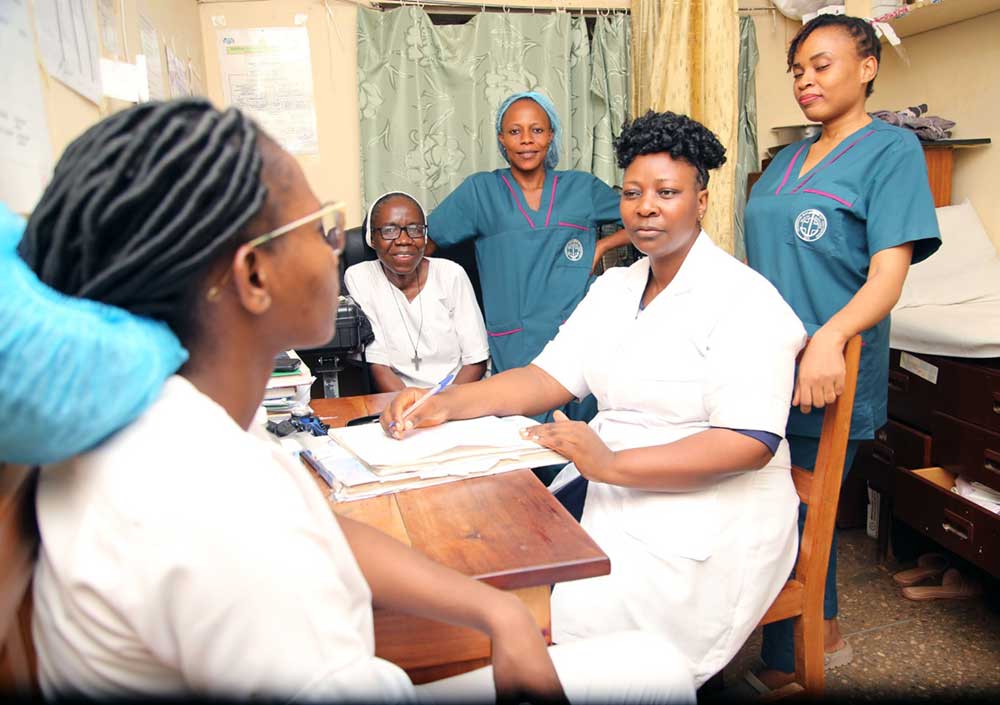
Credit: Akem Olives Nkwain
Lastly, we need greater investment. “Vaccination is free, but those out of the target groups need money to pay for screening and for treatment if screened positive. I call on all and sundry to invest in screening and treatment so that the masses who are poor and can’t afford, can access screening and treatment early. There are Cameroonians who can finance the screening of 10 people at a go. Just imagine if ten people finance the screening cost of ten people each. The multiplier effect will lead to huge impact – isn’t it?” says Manju.
More from Akem Olives Nkwain
Recommended for you

